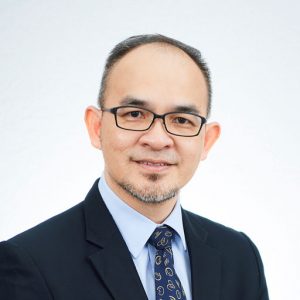Which sphere does Singapore Bible College exist to serve?
Local, regional, or global?
From a historical point of view, the college was founded in 1952, 13 years before the independence of this country. Since then, we have served churches beyond the boundaries of this island city. From a geopolitical point of view, the college is situated strategically in Southeast Asia, with millions of locals and migrants making this country a heartland for cultural and economic development. Moreover, this small nation has become internationally known for taking on the responsibility of peacemaking. In recent years, Singapore has facilitated peace talks between great nations for the sake of regional and global stability. The college, standing on the gospel truth, with local and regional interests in mind, joins in prayer for a global peace that reflects political, economic, and religious harmony.
Amid changing times, SBC has never deviated from its mission: to glorify God by training faithful servants of Jesus Christ for the edification of the church and the urgent evangelization of the unreached. To actualize the mission, the college has been serving alongside churches and mission agencies locally, regionally, and globally for more than six decades.

Interestingly, Jesus’ final instruction to his disciples seemed to be strategic in nature—the mission was to start local, then move to regional, before finally going global. Before his ascension, the resurrected Jesus promised this to his beloved disciples on the Mount of Olives: “But you will receive power when the Holy Spirit comes on you; and you will be my witnesses in Jerusalem, and in all Judea and Samaria, and to the ends of the earth” (Acts 1:8 NIV).
Jesus’ last exhortation fits perfectly with a Missions 101 class or a vision statement on missions for any Christian organization! However, upon a closer look, Acts 1:8 reveals more than just a missional strategy for evangelization based on geographical expansion. It contains, in fact, two conditions for the steady expansion of the kingdom of God: the empowerment of disciples by the Holy Spirit (Pentecost) and the urgency of the Second Coming of Christ (Parousia).
What significance do these two aspects of Jesus’ last exhortation have for theological education in partnership with the church for the gospel ministry? Firstly, theological education must act locally by equipping God’s people in this nation for evangelism and discipleship. The mandate given by Jesus is, “Therefore go and make disciples of all nations” (Matt 28:19a). This has to take place where the disciples are. Nearly 40% of our 460 current students are locals. They are equipped by our four schools to (1) edify local churches as leader-pastors who preach the Word, lead worship, and shepherd the flock, (2) reach out to the lost as evangelists and disciple-makers, and (3) heal broken souls as counsellors and mentors.
Secondly, theological education must serve regionally with a fervour for God’s mission of reaching the lost. In Acts 2, the outpouring of the Spirit of God upon the disciples enables them to proclaim the gospel locally and to different parts of the world. For more than 65 years, SBC has striven to equip God’s people in Asia. Our students come from 25 nations, mostly from this continent. They speak a multiplicity of tongues, eat wide varieties of food, wear different ethnic costumes, and even think and behave differently. But they all are endowed with spiritual gifts which could be utilized for reaching out to the world in one way or another. Through them, the studies and experiences at our college are cross-cultural and take place within a vibrant community of learners. Indeed, intercultural adaptation and a global outlook are quietly moulding every member of this campus.
Thirdly, theological education must think globally by taking an integrative and holistic approach to biblical, theological and practical knowledge. In their words and deeds, our faculty members have to break down the narrow, fragmented, and dichotomized worldviews that create unnecessary separations and conflicts between sacred and secular, spiritual and academic, West and East, Bible and theology, theory and practice, church and mission, clergy and laity, and regional and global.
Please pray for and support SBC so that we may truly act locally, serve regionally, and think globally for the Great Commission of our Lord Jesus Christ!






